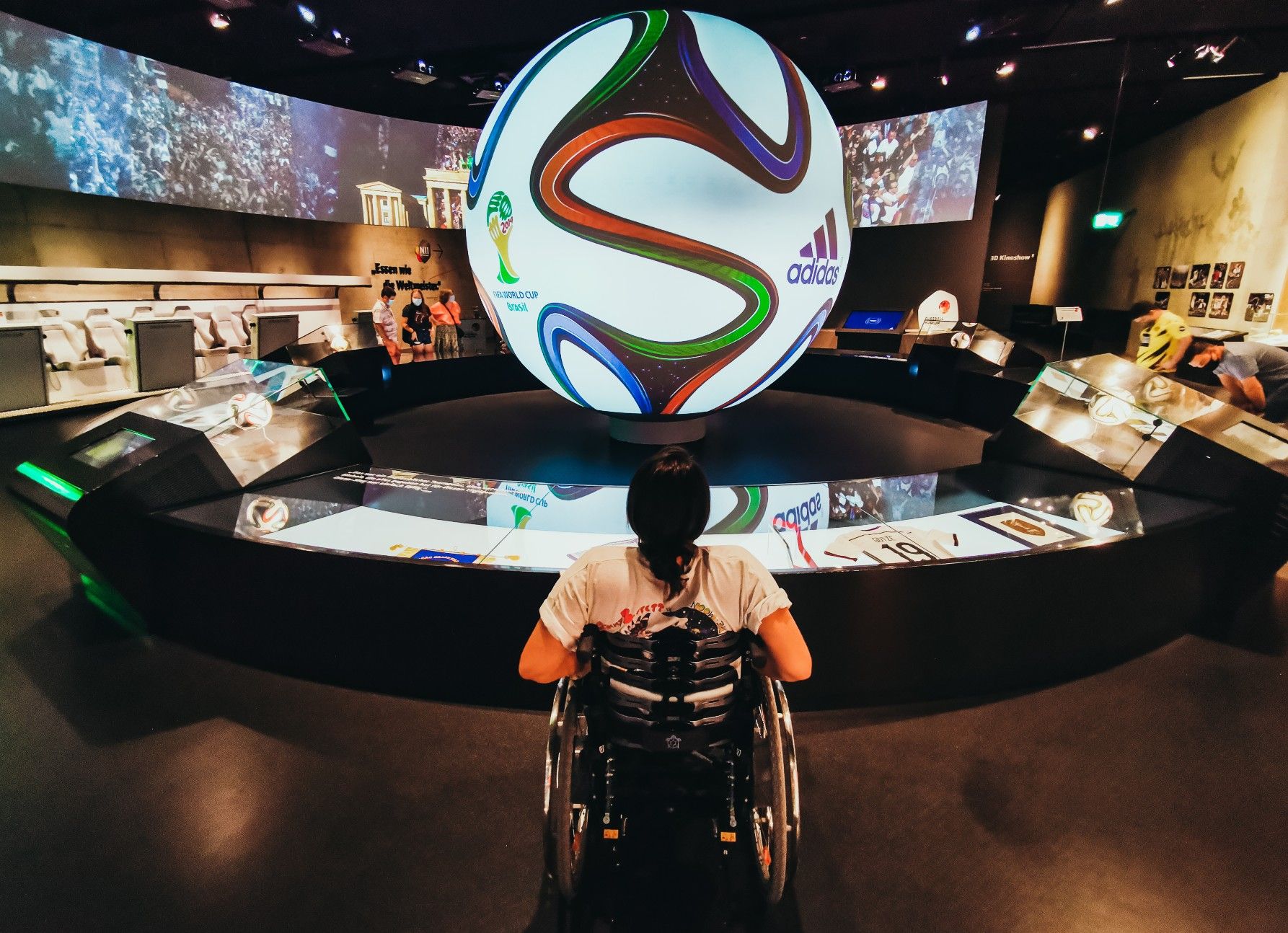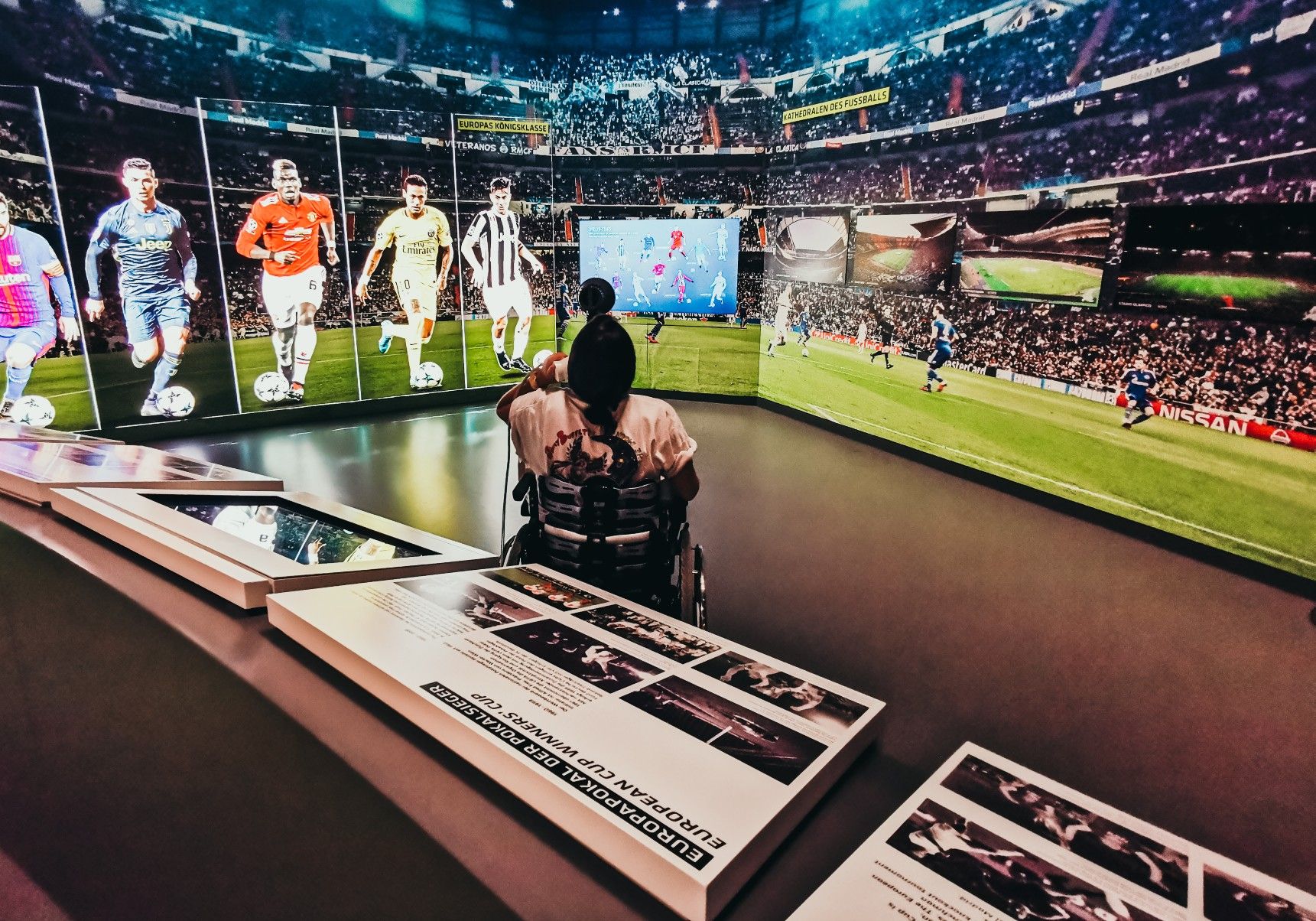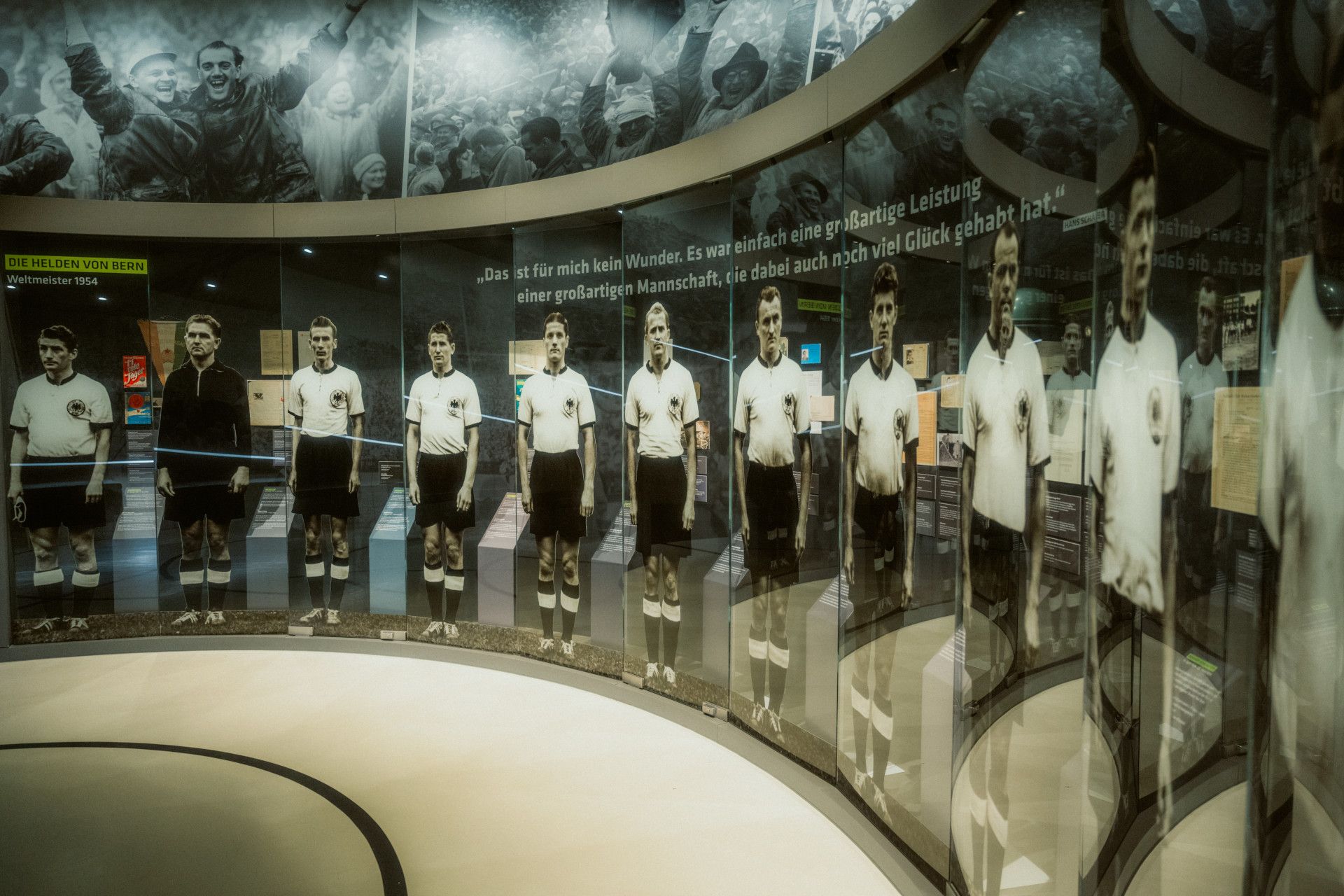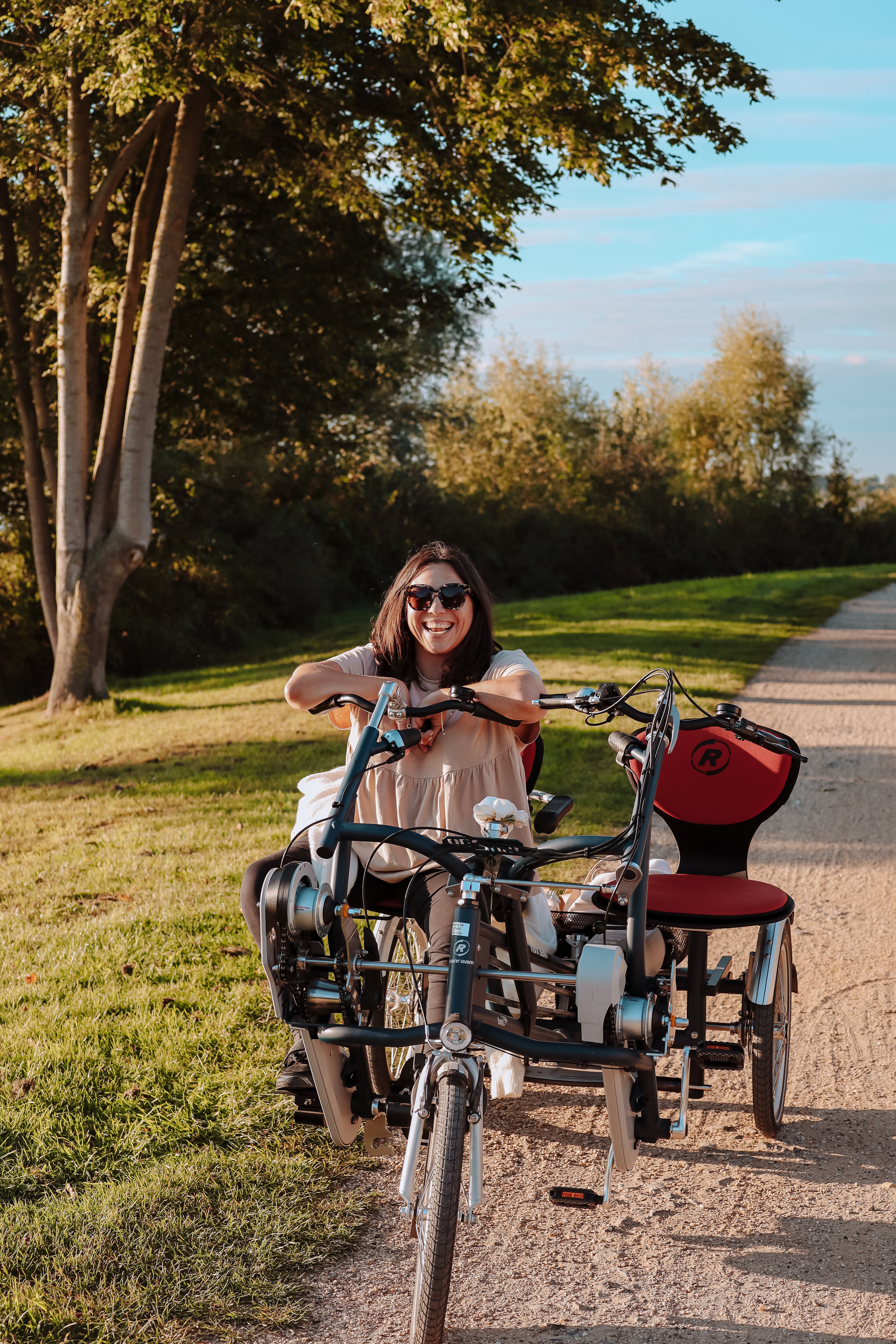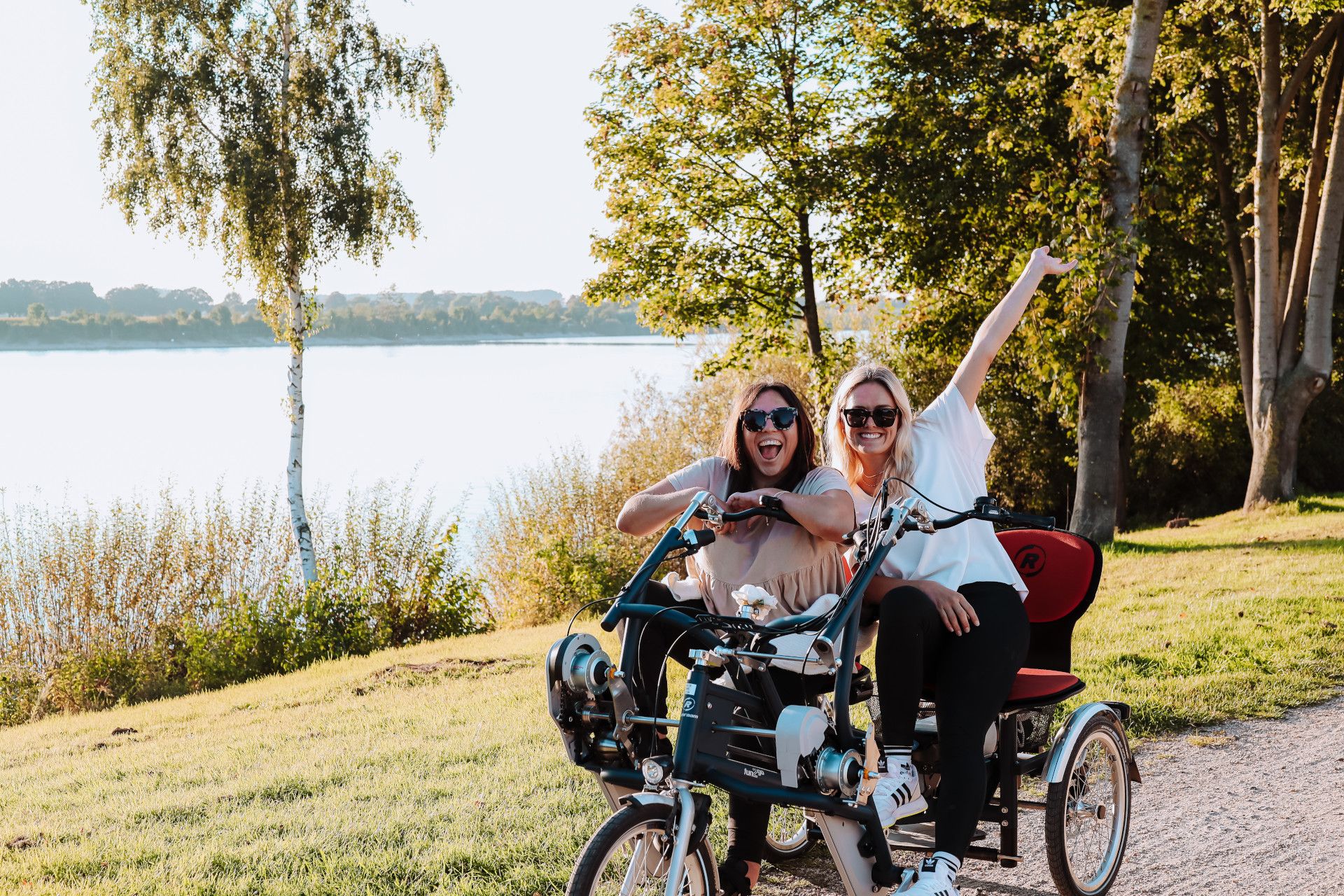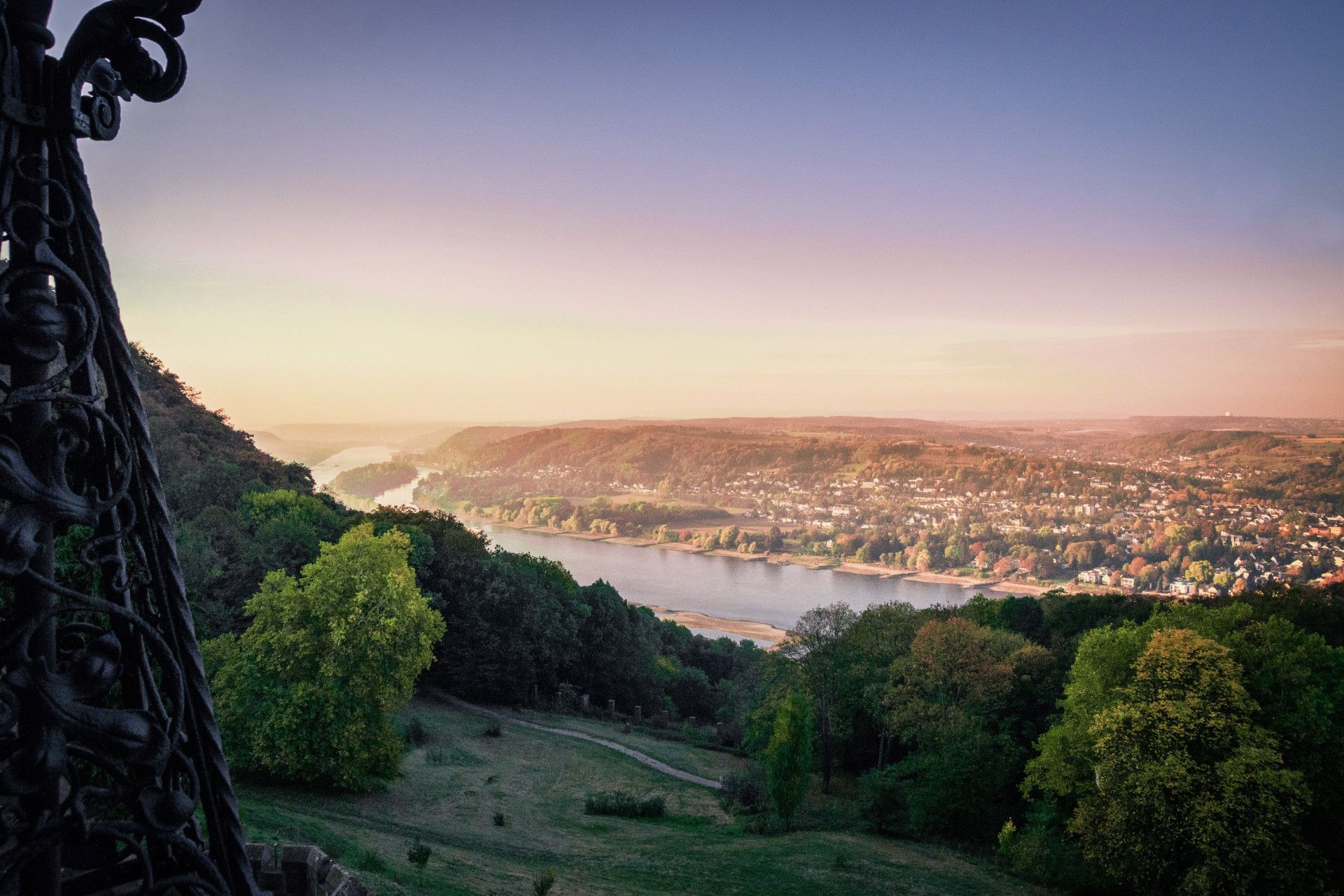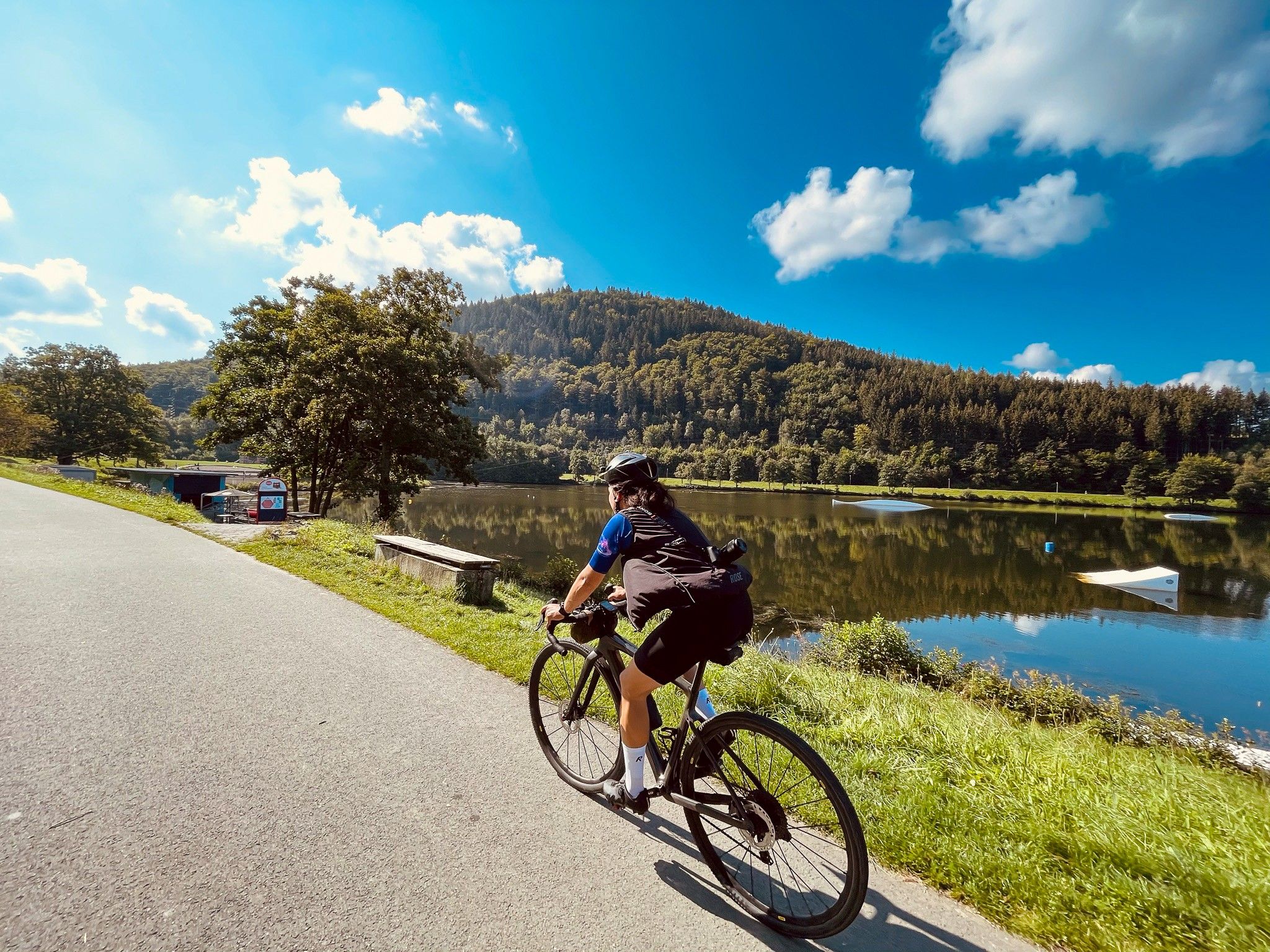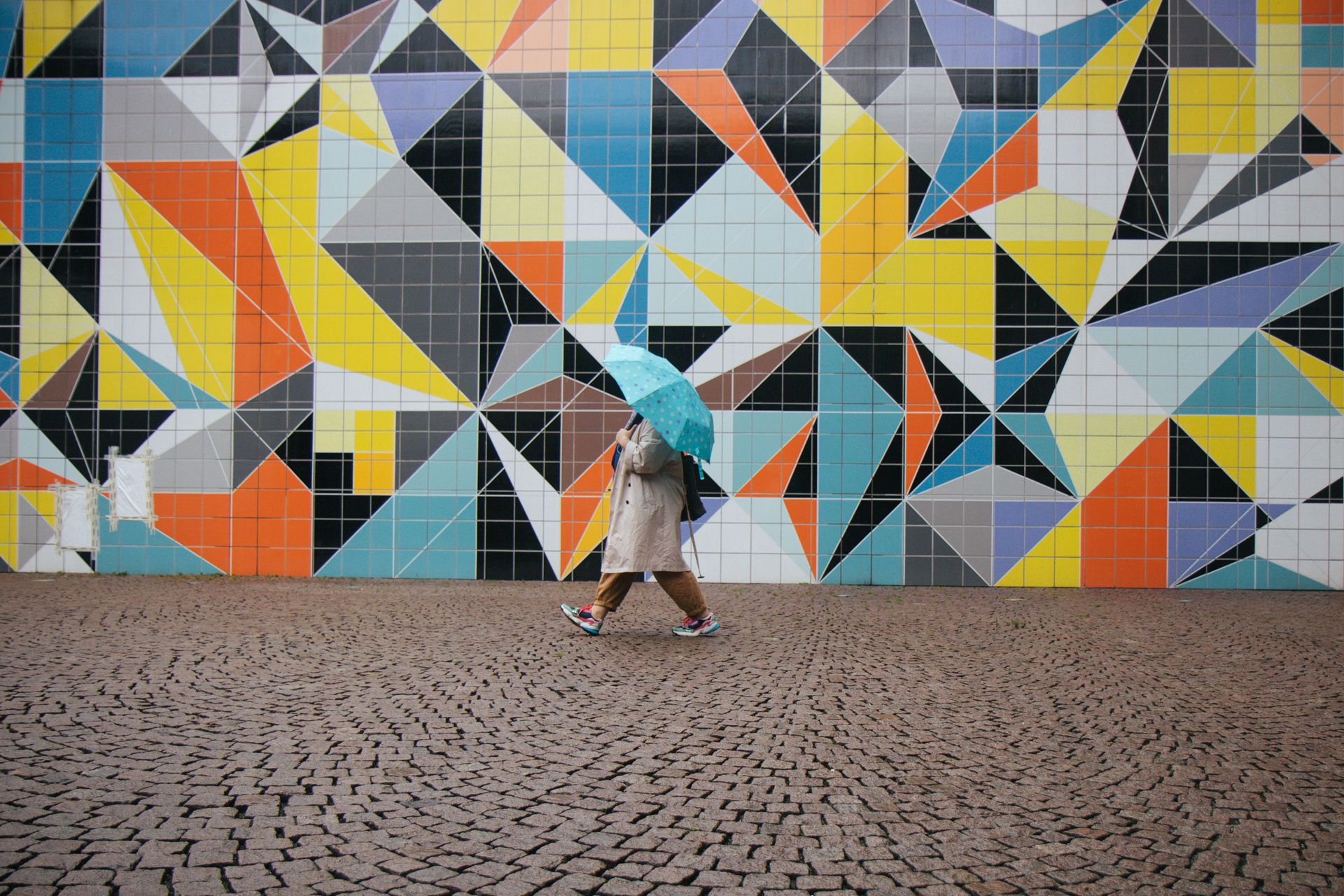The largest city in the Ruhr region has been recognised as an accessible tourist destination in accordance with the standardised nationwide 'Reisen für alle' labelling system. Together with my husband Lorenz, I set off on a journey to explore the diversity of Dortmund in a wheelchair. We quickly realised that the industrial city has much more to offer besides coal, football and beer during our city trip "Dortmund accessible".

Full of surprisesTour through the history of the city
Thanks to the special city tour for people with walking disabilities and wheelchairs offered by tour guide Anja Hecker-Wolf from Stadtkernobst, we were able to gain a great insight into the city's rich history, its varied cultural programme and its transformation into a technology city in no time at all. As a local, Anja knows the stories that make up the Ruhr region only too well. She likes to combine information with entertainment, which is why you will certainly be familiar with Dortmund's Lust & Laster after a guided tour. For us, this is a great way to learn a lot about the city and its past, including the persecution of witches, in a short space of time.
On our tour through Dortmund's city centre, there were lowered kerbs everywhere, which made getting around - at least along the tourist paths - pretty easy with my wheelchair Lutzi. Another way to discover the city is to take a trip on the sightseeing double-decker bus, which is also accessible for wheelchair users. As my wheelchair is assisted by a small drive, I prefer to do a city tour without a vehicle when the weather is nice.
In addition to the old town, we wanted to visit the area around Lake Phoenix with Anja. Just as we were grabbing an ice cream, it started to pour terribly. As the afternoon only promised more warm summer rain, we changed our plans without further ado and dedicated ourselves to the art in the Dortmunder U.
Art and creativityDortmund U
The former brewery building and landmark of the city is now a centre for art and creativity. There are various exhibitions showing art from the beginning of the 20th century to the present day. We took the lift from one floor to the next, through various exhibition rooms and past impressive works of art and installations. As a cultural centre, the building cooperates with many other cultural institutions, which is why there are always changing events, workshops, lectures and video evenings on offer. In the U-Tower, as the building is often called, you will also find a few catering options. On the roof terrace "The View", in the entertainment restaurant "Zum Goldenen U" or in the grill restaurant "EMIL", your physical well-being will be catered for. The building and all its facilities are accessible without steps, with wheelchair-accessible toilets and lifts to take you to all levels.
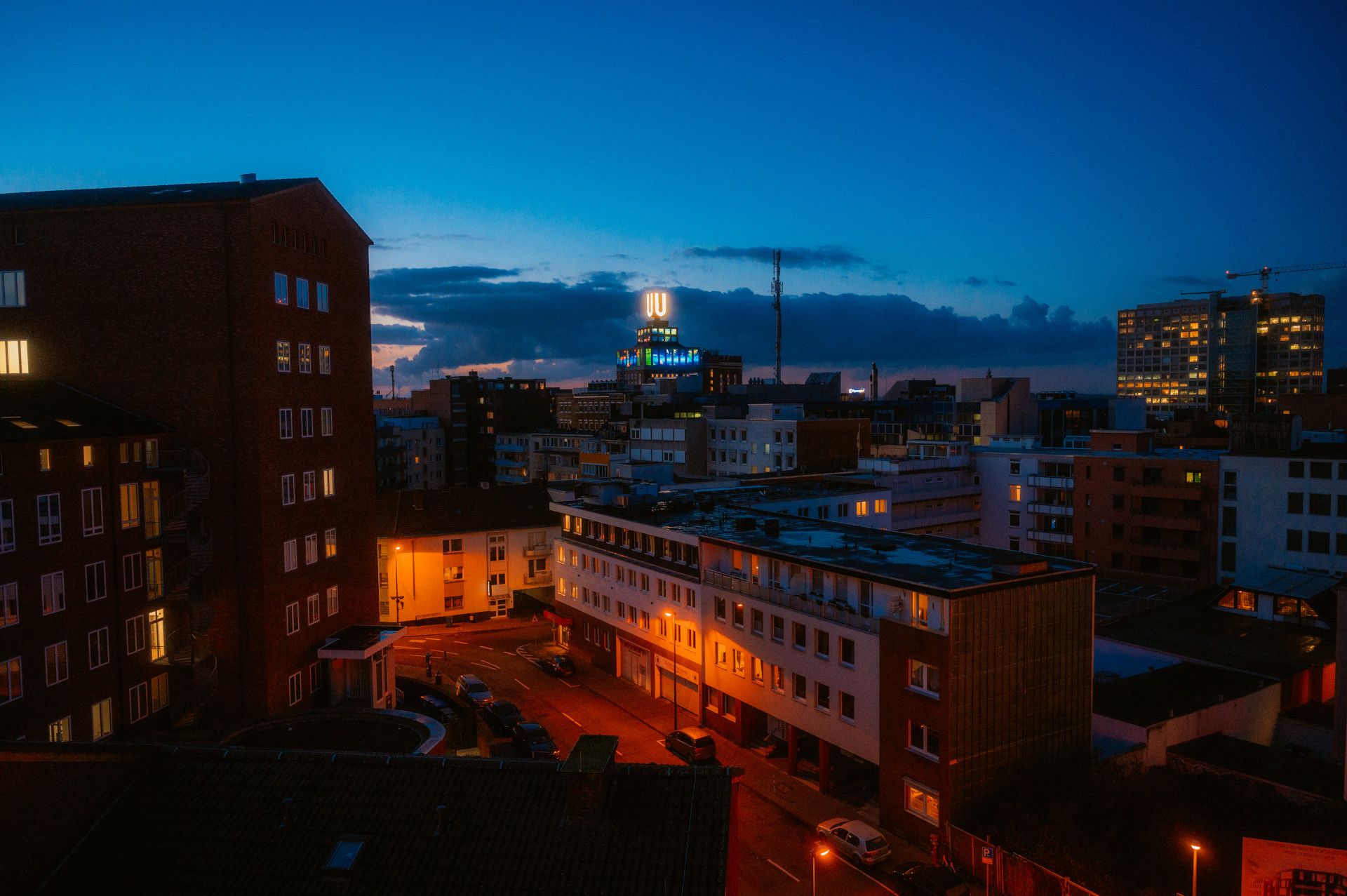
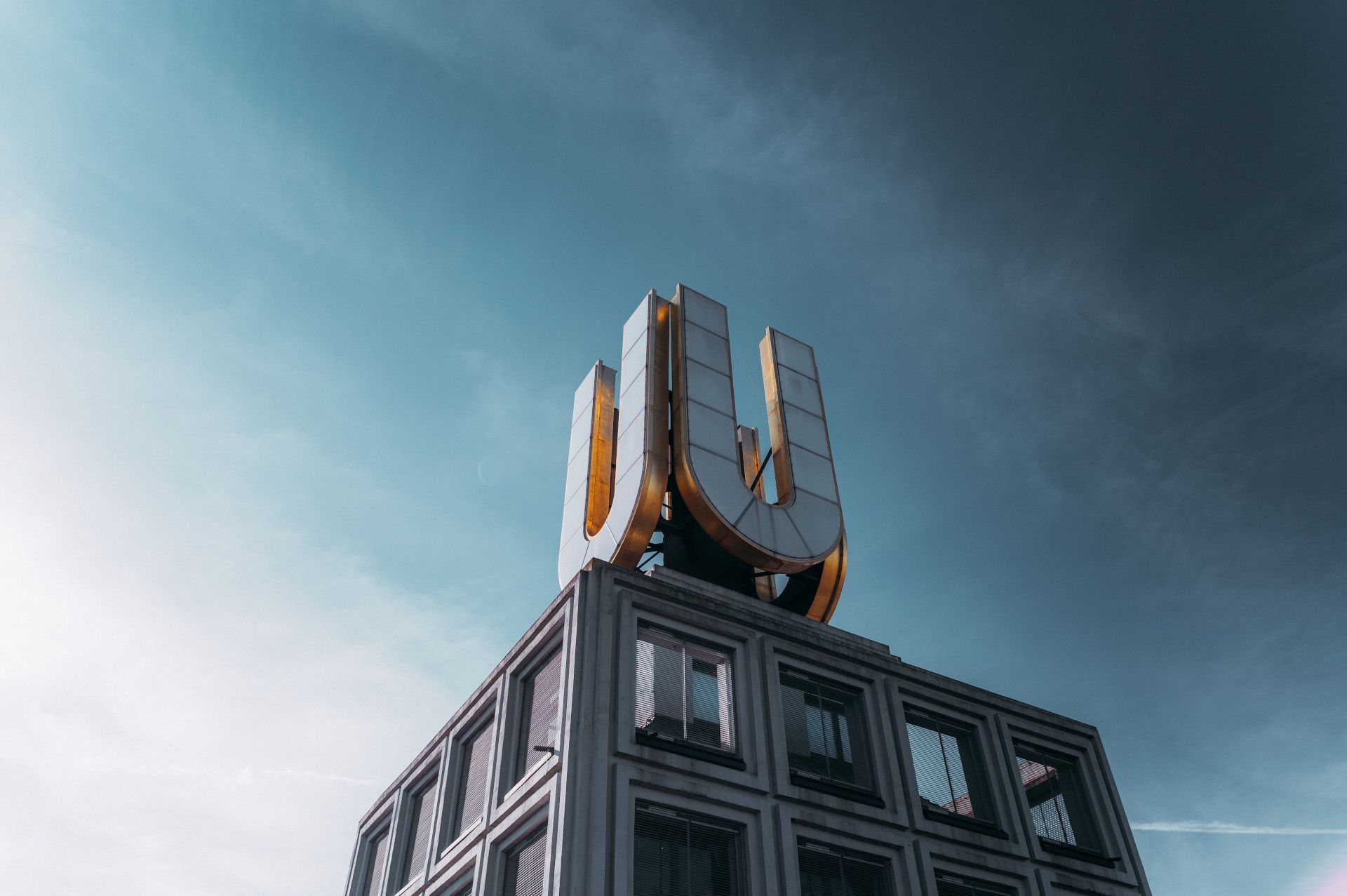
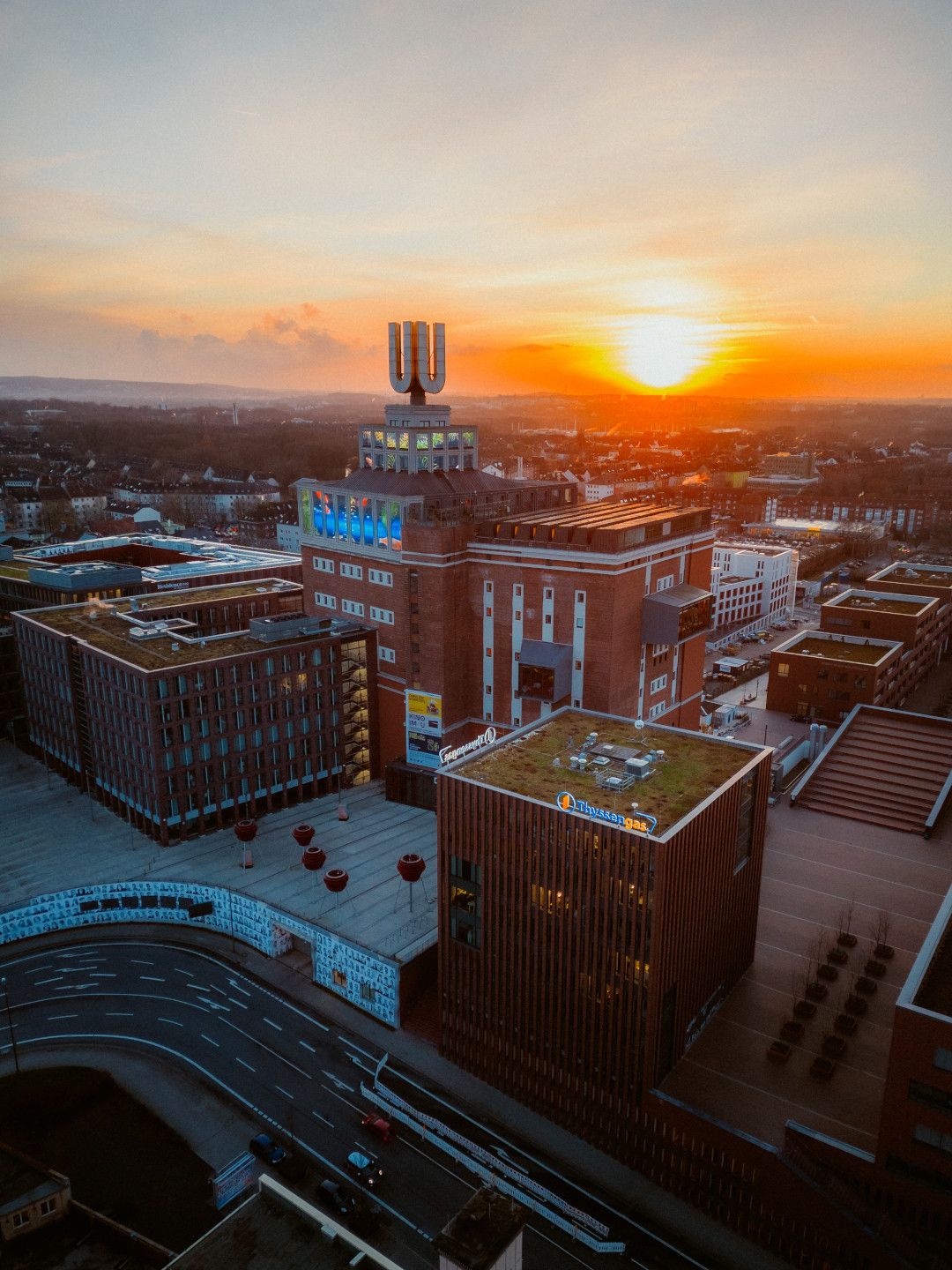

Experience industrial cultureZollern colliery
The disused coal mine in the north-west of the city is definitely one of our highlights from Dortmund. The "Castle of Labour", as the Westphalian State Museum of Industrial Culture is also known, is wonderfully well positioned in terms of accessibility. All of the colliery's exhibition rooms and the extensive museum grounds (including the machine hall, freight room, mining tunnels, etc.) as well as the sanitary facilities and catering facilities are accessible for people with walking disabilities and wheelchair users. Guided tours are offered in sign language and the permanent exhibition is equipped with a guidance system for blind and visually impaired people.
During the tour of a reconstructed mine, we were even able to get a sense of what it might feel like to be "underground". The feeling - knowing that we were not hundreds of metres underground in a mine tunnel - was nevertheless oppressive, yet interesting and not at all easy for me to bear. It's hard to imagine the degrading conditions under which miners had to extract raw materials here in the past.
€ = The entrance fee for adults is €8. The reduced rate (from GdB 50) is €4.00.
The fascination of sportGerman Football Museum
Until recently, I would never have guessed that we football fanatics would end up in a football museum. Thanks to Sportfreunde Stiller, I of course know when Germany has already won the World Cup: "54, 74, 90, 2014...", otherwise I can't boast much knowledge about football. But a visit to this museum was about to change that. At the start of the tour, you dive straight into the Miracle of Bern, which immediately gave us goosebumps. The rest of the exhibition is also exciting and vividly designed. We were really impressed by the interactive possibilities and the interesting world of experience.
The entrance fee for adults is a hefty €19. You can get a reduced admission price of €12 with proof of a degree of disability (GdB) from 50. A "B" in the disabled person's ID entitles the accompanying person to free admission.
Wheeliewanderlust, Blogger Kim Lumelius in front of the large illuminated soccer in the German Football Museum in Dortmund, Ruhr Area Wheeliewanderlust, Blogger Kim Lumelius visits the German Football Museum in Dortmund, Ruhr Area Wheeliewanderlust, Blogger Kim Lumelius visits the German Football Museum in Dortmund, Ruhr Area Johannes Höhn, Tourismus NRW e.V., Display of the 1954 World Cup team in the German Football Museum in Dortmund, Ruhr Area
Best entertainmentRuhr High German on Phoenix West
We had a really good laugh at the Phoenix-West industrial estate. Schalthaus 101 has become the home of the comedy event series "Ruhrhochdeutsch". This means the stage is clear for all the stars and starlets of the comedy scene. Together with around 300 other guests, we were able to listen to Jürgen Malmsheimer's humorous lines and texts. It was my first event of this size since the coronavirus pandemic and it was really good for us. The unusual location with its industrial charm fortunately offers enough space and thus enough opportunity to keep our distance. The unusual ambience, the friendly hospitality and the eloquent cabaret artist provided us with a varied and, above all, funny evening. The entrance is accessible thanks to a very flat ramp at the entrance and to the seats. A mobile wheelchair-accessible toilet was also placed on the premises.
A bed in the RuhrpottStay overnight at the Hotel Esplanade
Our accommodation was just a few minutes' walk from the pedestrianised area of the old town and the main railway station. The Cityhotel Esplanade is located right in the centre of Dortmund. Two of the 83 rooms have now been made accessible. In the wheelchair-accessible bathroom there are grab rails next to the toilet and a shower seat has been provided in the level-access shower. The room belongs to the "First-Class" category, although I have to admit that I would have liked the rooms with the names Ruhrpott, Phoenix or Panorama even better. The hotel has its own car park and lift. At the entrance there is a mini step to negotiate, unfortunately only a steep ramp leads into the inner courtyard. Better than none of course, it can be overcome with help. The breakfast was particularly delicious, which we ordered à la carte during our stay the evening before
and enjoyed in the courtyard when the weather was nice.
Kim is a passionate travel blogger and shares inspiring tips for accessible excursions on her blog Wheelie Wanderlust - authentic, committed and with a lot of heart for inclusive travel.
